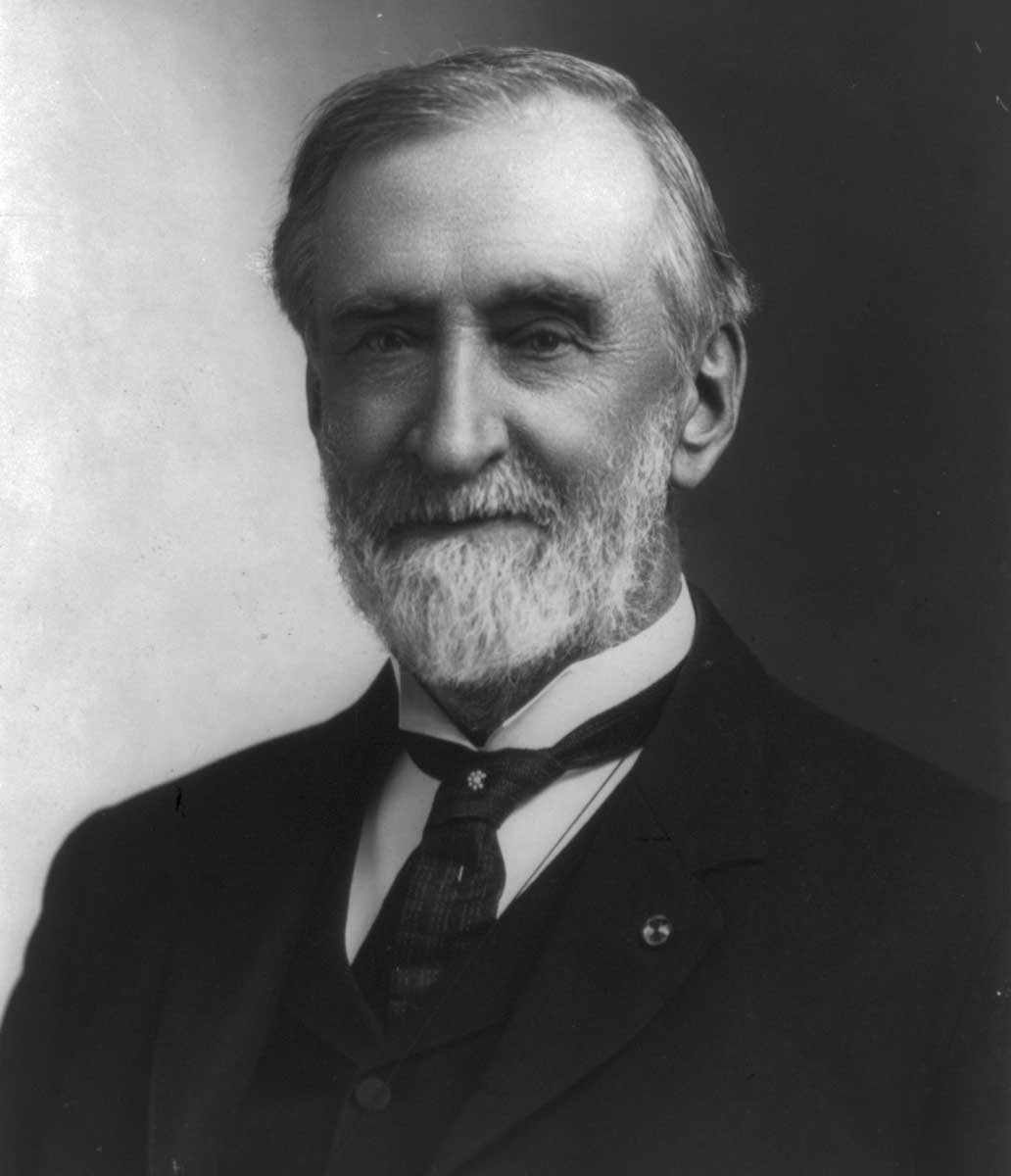- Redfield Proctor
Infobox US Cabinet official
name=Redfield Proctor
order=37th
title=United States Secretary of War
term_start=March 5 ,1889
term_end=November 5 ,1891
president=Benjamin Harrison
predecessor=William C. Endicott
successor=Stephen B. Elkins
order2=37th
office2= Governor of Vermont
term_start2= 1878
term_end2= 1880
lieutenant2=Eben R. Colton
predecessor2=Horace Fairbanks
successor2=Roswell Farnham
birth_date=birth date|1831|6|1|mf=y
birth_place=Proctorsville, Vermont, U.S.
death_date=death date and age|1908|3|4|1831|6|1
death_place=Washington, D.C. , U.S.
party=Republican
spouse=Emily Jane Dutton
profession=Lawyer ,Politician Redfield Proctor (
June 1 ,1831 ndashMarch 4 ,1908 ) was a U.S.politician of the Republican Party. He served as Governor of Vermont from 1878 to 1880, as Secretary of War from 1889 to 1891, and as a United States Senator for Vermont from 1891 to 1908.Proctor was a native of Proctorsville (a village in
Cavendish, Vermont ), named after his family, inWindsor County, Vermont . His father, Jabez Proctor, was a farmer, a merchant, and a prominent local Whig politician.After graduating from
Dartmouth College in 1851, Redfield Proctor returned to Proctorsville, where he became first a businessman, and later a lawyer. He married Emily Jane Dutton in 1858, and moved to Boston two years later. Of their five children, four survived: Arabella G., Fletcher D. , Redfield Jr., Emily D. He was initiated intoDelta Upsilon Fraternity as an honorary member by the Middlebury Chapter.Upon the outbreak of the
American Civil War in 1861 he returned to Vermont and enlisted in the 3d Vermont Regiment, was commissioned as lieutenant and quartermaster, and repaired to the front. In July of the same year he was appointed on the staff of General William F. ("Baldy") Smith, and in October was promoted and transferred to the 5th Vermont Volunteers, of which he was commissioned major. With this regiment he served nearly a year in the neighborhood of Washington and on the Peninsula. In October, 1862, Major Proctor was promoted to the colonelcy of the 15th Vermont Volunteers, and participated in theGettysburg Campaign , but was stationed in the rear and did not participate in the battle.After being mustered out of military service in 1863, Proctor initially returned to practicing law, this time in Rutland, Vermont entering into law partnership with Wheelock G. Veazey. In 1869, he entered business again, taking a job as a manager in the Sutherland Falls Marble Company. In 1880, this company merged with another to become the
Vermont Marble Company , over which Proctor served as president. Six years later, the area containing the company's marble quarries, locally known as Sutherland Falls, was split into a separate town, called Proctor.During these years, Proctor began his political career. In 1866 he became a selectman of the town of Rutland. In 1867 he represented his town in the state Legislature, serving as chairman of the committee on elections of the lower House. Again a member of the House in 1868, he served as a member of the committee on ways and means. Elected to the state Senate in 1874, he was chosen president pro tempore of that body. In 1876 he was elected Lieutenant-Governor of the state, and in 1878 was nominated by the Republicans and elected Governor of Vermont.
Proctor remained active in state politics after stepping down as governor. He was delegate-at-large to the Republican national convention in 1884, and also in 1888, and in the latter year was chairman of the Vermont delegation. In 1888, he led the Vermont delegation to the Republican National Convention, where he seconded the presidential nomination of
Benjamin Harrison .In 1888 the Legislature of Vermont unanimously recommended him for a cabinet position, and in March, 1889, Harrison chose Proctor to be his Secretary of War. At the War Department, Proctor made a mark with his managerial skill and reforming zeal, with which he modernized the armed forces and improved the living conditions of enlisted soldiers.
Proctor left the War Department in November, 1891 to become a United States senator, filling a vacancy caused by resignation. As a senator he served as chairman of the
U.S. Senate Committee to Establish a University of the United States from 1891 to 1893. He remained a senator for the rest of his life, and was an effective advocate in the Senate for high tariffs and the gold standard, as well as an influence on the military policies of the McKinley andTheodore Roosevelt administrations.Proctor died in
Washington, DC .Two of Proctor's children,
Fletcher D. Proctor andRedfield Proctor, Jr. , served as Governors of Vermont.References
* Garraty, John A. and Mark C. Carnes. "American National Biography", vol. 17, "Proctor, Redfield". New York : Oxford University Press, 1999.
* Jacob G. Ullery, compiler, Men of Vermont: An Illustrated Biographical History of Vermonters and Sons of Vermont , (Transcript Publishing Company, Brattleboro, VT, 1894), Part II, pp. 327.
* [http://www.army.mil/cmh-pg/books/Sw-SA/Proctor.htm United States Army biography of Redfield Proctor]
*CongBio|P000547 Retrieved on2008-02-14
Wikimedia Foundation. 2010.
